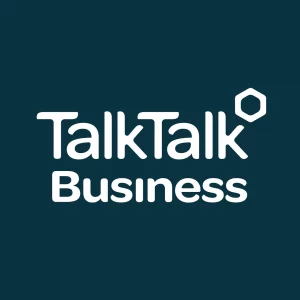Sponsored Links
ACTA Copyright Enforcement Treaty Still Not Seen by UK Government MPs
Posted: 22nd Sep, 2010 By: MarkJ
 The controversial Anti-Counterfeiting Trade Agreement (ACTA), which seeks to establish international standards on intellectual property rights (copyright) enforcement (i.e. such as on the internet or through ISPs), has come under new pressure today after the Intellectual Property Office (IPO) revealed that neither UK government MPs nor the Culture, Media and Sport Select Committee had seen it.
The controversial Anti-Counterfeiting Trade Agreement (ACTA), which seeks to establish international standards on intellectual property rights (copyright) enforcement (i.e. such as on the internet or through ISPs), has come under new pressure today after the Intellectual Property Office (IPO) revealed that neither UK government MPs nor the Culture, Media and Sport Select Committee had seen it.The situation proves that, while ACTA might recently have been watered down for broadband ISPs (here) by removing forced monitoring of customers, third party content liability and internet account disconnection clauses, it's still no stranger to controversy.
As it stands no democratic institution in the UK has seen the official ACTA draft and parliament has not even been involved in the negotiating process. Participants in the negotiations include Australia, Canada, the European Union (EU) - represented by the European Commission (EC), the EU Presidency and EU Member States + Japan, Korea, Mexico, Morocco, New Zealand, Singapore, Switzerland and of course the United States of America (USA).
Florian Leppla, Campaigner at the Open Rights Group (ORG), said:
"I'm shocked that this international agreement that goes well beyond existing copyright treaties has not been examined by Parliament. ACTA will affect all of us and our elected representatives need to know what we are signing up to.
Peter Hustinx, the European Data Protection Supervisor, has questioned the legality of ACTA under EU privacy laws. ACTA would allow for disproportionate civil copyright damages well beyond current UK law. Yet we have been told that changes in law would not be necessary.
ACTA will drive the UK towards privacy violations, and commit governments to act against personal copyright infringement. It will be used as a weapon to push for new erosions of fundamental rights - without anyone from our Parliament having taken a serious look."
"I'm shocked that this international agreement that goes well beyond existing copyright treaties has not been examined by Parliament. ACTA will affect all of us and our elected representatives need to know what we are signing up to.
Peter Hustinx, the European Data Protection Supervisor, has questioned the legality of ACTA under EU privacy laws. ACTA would allow for disproportionate civil copyright damages well beyond current UK law. Yet we have been told that changes in law would not be necessary.
ACTA will drive the UK towards privacy violations, and commit governments to act against personal copyright infringement. It will be used as a weapon to push for new erosions of fundamental rights - without anyone from our Parliament having taken a serious look."
In addition the Motion Picture Association of America (MPAA), which represents the American motion picture, home video and television industries in the United States, recently added fuel to the fire by asking Mexico's Ministry of the Economy whether ACTA could be used to block "damaging" websites like Wikileaks (here). Make of that what you will.
The treaty negotiators are expected to meet in Tokyo tomorrow where a final text is likely to be agreed, or at least something that is very close to final. Democratically elected MEP's in the European Parliament, which recently agreed to a Written Declaration calling for fundamental rights to be respected in ACTA, will at best only be given the chance to either approve or reject it.
Many MEP's remain angry at the fact that ACTA negotiations have continued to be conducted behind closed doors, although leaked drafts are common. In any case it will be interesting to see what happens when treaty partners start shopping the deal out to those that they have so far shunned.
Search ISP News
Search ISP Listings
Search ISP Reviews
Latest UK ISP News








Cheap BIG ISPs for 100Mbps+
150,000+ Customers | View More ISPs
Cheapest ISPs for 100Mbps+
Modest Availability | View More ISPs
Latest UK ISP News
Helpful ISP Guides and Tips
Sponsored Links
The Top 15 Category Tags
- FTTP (6924)
- BT (3920)
- Politics (3124)
- Business (2824)
- Openreach (2705)
- Building Digital UK (2540)
- Mobile Broadband (2529)
- Statistics (2165)
- FTTC (2153)
- 4G (2134)
- Virgin Media (2071)
- Ofcom Regulation (1803)
- 5G (1786)
- Fibre Optic (1617)
- Wireless Internet (1615)
Sponsored
Copyright © 1999 to Present - ISPreview.co.uk - All Rights Reserved - Terms , Privacy and Cookie Policy , Links , Website Rules






























